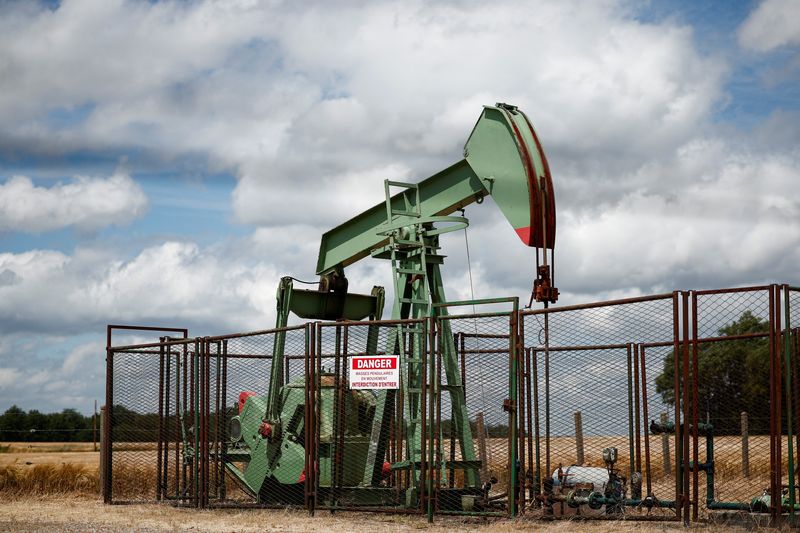Oil prices hover near lowest in six weeks
By Paul Carsten
LONDON (Reuters) - Oil prices traded around their lowest level in six weeks on Wednesday, as the northern hemisphere gets deeper into summer with limited signs of the expected fuel consumption surge the period usually sees.
Wednesday saw only a slight reprieve, as prices snapped three straight sessions of decline on falling U.S. crude inventories and growing supply risks from wildfires in Canada boosted prices.
Brent crude futures for September rose 66 cents, or 0.8%, to $81.67 a barrel by 0908 GMT. U.S. West Texas Intermediate crude for September increased 65 cents, or 0.8%, to $77.61 per barrel.
The likely reason for the wider sell-off has been the "diminishing hopes of demand resurrection," with "an admission from refiners that the summer leap in consumption is simply not taking place," said Tamas Varga of oil broker PVM.
Prices had fallen to a six-week low on Tuesday, with Brent closing at its lowest level since June 9 on ceasefire talks between Israel and Hamas in a plan outlined by U.S. President Joe Biden in May and mediated by Egypt and Qatar.
Prices also suffered due to continued concern that the economic slowdown in China, the world's biggest crude importer, would weaken global oil demand.
WTI had lost 7% over the previous three sessions, while Brent shed nearly 5%.
U.S. crude oil, gasoline and distillate inventories fell for the fourth straight week in the previous week, according to market sources citing the American Petroleum Institute (API), reflecting steady demand in the world's largest consumer of oil.
Wildfires in Canada were also supporting prices. The fires have forced some producers to curtail production and were threatening a large amount of supply, ING analysts said.
"Market is nearing oversold territory and we still believe that the fundamentals support prices moving higher from current levels over the remainder of the third quarter on the back of a deficit environment," ING analysts said in a note.
The API figures showed crude stocks falling by 3.9 million barrels in the week ended July 19, the market sources said, speaking on condition of anonymity. Gasoline inventories fell by 2.8 million barrels and distillates shed 1.5 million barrels.
That would be the first time crude stocks in the United States fell for four weeks in a row since September 2023.
Official government data on oil inventory data is due for release on Wednesday.
Source: Investing.com
